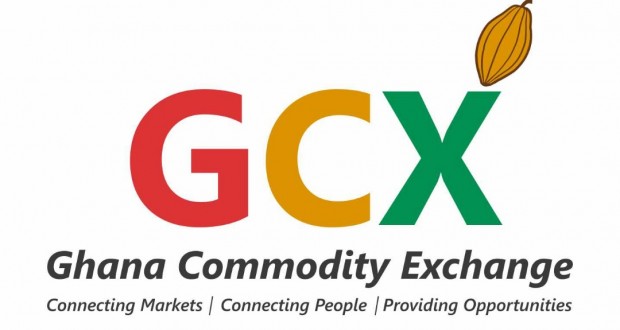Ghana launched its first commodity exchange almost a year ago on 6 November 2018. The Excahnge is the 3rd of such exchange in Africa after South Africa and Ethiopia.
Just about turning a year old, a collaboration with ARB Apex Bank has seen the launch of a GH¢ 50 ($9.3) Million electronic warehouse receipt (e-WR) financing program for smallholder farmers.
Small holder farmers are able to access this fund set aside by ARB Apex Bank once they deliver their produce to the electronic warehouse. Their produce once accepted becomes a collateral for them to access a discounted portion of their cash from the sale of their produce.
The GCX Platform
The exchange is a platform that brings buyers and sellers together to facilitate local trade. The Ghana Commodity Exchange (GCX) creates a seamless interface for the trading of food, minerals and other commodities in the country. It brings transparency in agribusiness, boost confidence in the industry, raise standards of food quality to global standards and ultimately give farmers their due for all their hard work of tilling the ground.
Launching the Program
GCX and ARB Apex Bank launched the eWR program in Kumasi at an event held in Ghana Commodity Exchange. This marks a historic moment in Ghana! ARB Apex has set aside over GHS 50 million to commence the program. This is the start of the provision of credit / loans to farmers, based on their GCX electronic warehouse receipt. In other words, farmers don’t need to pledge houses and cars for use as collateral; their commodities deposited into a GCX certified warehouse are enough. This is being done “to achieve the goal of true development of the agricultural value chain and improve the lives of rural communities” stated the CEO of GCX Dr. Kadri Alfah. “Greater access to financing and a diverse set of credit facilities is critical,” he continued.
200,000 Thousand Farmers
ARB Apex bank is the first partner bank of GCX to have issued loans to farmers using their commodities stored at a GCX certified warehouse as collateral. The bank estimates two hundred thousand (200,000) farmers to benefit from this novel product in the first year with room for upscaling significantly once concept takes root.
“Even though the RCBs have been lending to the Agricultural sector, this collaboration provides an opportunity for the RCBs to upscale and lend to more farmers since the risk in this system is nearly eliminated.” Mr. Kojo Mattah, the CEO of ARB Apex Bank said.
The CEO of GCX, Dr. Kadri Alfah remarked, “This will give Ghanaian farmers the working capital they need to sustain their business activities in between each harvesting season as well as give them greater purchasing power for seeds, fertilizers and other inputs”.
Post-Harvest Losses
The operations of the Ghana Commodity Exchange solves numerous problems that confront Ghanaian farmers and their markets for years. Problems include post-harvest losses, sale of unstandardized commodities, being price-takers, delayed payment for commodities sold and inability to access credit due to collateral demands from banks.
Also present to pledge their support was the IFC World Bank Group with financial support from the Swiss State Secretariat for Economic Affairs (SECO). Mrs. Doreen Oppan, the Project lead for Ghana WRS in an address said “The IFC Ghana WRS Project- a technical assistance project- would continue to jointly facilitate technical support, capacity development and education activities for the rural and community banks and their network of farmers.”
Director of the Ashanti Regional Coordinating council, Mr. Ebenezer Ntow Ayisi who was present at the launch event said; “The innovations on offer from the Ghana Commodity Exchange can indeed only be described as providing a totally different future for agriculture in Ghana….A future where farmers and buyers have the opportunity to apply grading standards to their produce, obtain suitable prices for their wares and now a future where farmers can go into banks to obtain loans.”
Banks & Financial Institutions
The Exchange encourages banks and other financial institutions to participate in the electronic warehouse receipt financing. It offers the opportunity to minimize the risk of loss of value of the collateral (stored commodity) by monitoring movements in its market value and using margining and price risk management instruments with up to date market data analysis and notifications. Loss of value is further minimised due to the structured regular inspection carried out by an FDA-approved GCX warehouse operator to ensure that the stored commodity retains its value.







